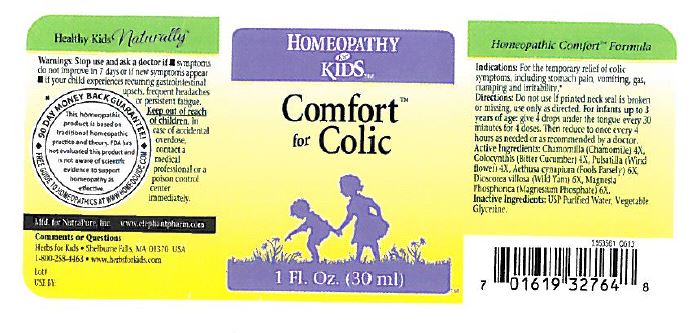
Comfort For Colic | Comfort For Kids Liquid while Breastfeeding
What is Comfort For Colic | Comfort For Kids Liquid used for?
Purpose: For the temporary relief of colic symptoms, including stomach pain, vomiting, gas, cramping and irritability
I am currently breastfeeding and I want to know if using Comfort For Colic | Comfort For Kids Liquid is safe for my kid? Does it have any effect on milk production?

Comfort For Colic | Comfort For Kids Liquid Breastfeeding Analsys
Magnesium phosphate, dibasic while Breastfeeding
SafeCAS Number: 10043-83-1
Ingested magnesium is not concentrated in the breast milk. Average natural concentration of magnesium in the milk is 31 mg / L (15 to 64 mg / L) which is barely affected by magnesium intake. Its low oral bioavailability makes the step to plasma infant from ingested breast milk is scarce, except in premature and immediate neonatal period that may be characterized by an increased intestinal absorption. Daily Magnesium needs for nursing mothers are estimated at 250 mg.Avoid chronic use or overuse.
Chamomile while Breastfeeding
SafeCAS Number: 520-36-5
It is a widely used plant even in infants. Because of lack of toxicity, a moderate use is considered to be safe. If topically used, do not apply it on the nipple because risk of contact dermatitis has been reported. There are two different species with similar properties: 1) Common or Sweet Chamomile (Matricaria recutita or Chamomilla recutita). 2) Roman, English or Bitter Chamomile (Anthemis nobilis o Chamaemelum nobile). Inflorescence of the herb is used. Contains Essential Oil, Flavonoids, Lactones and Tannins. Unproven properties are: Anti-spasmodic. Digestive, Anti-inflammatory, Sedative.
Citrullus colocynthis fruit while Breastfeeding
DangerousCucurbitaceae plant originally from Turkey with laxative properties. Highly toxic can cause death. Not recommended by the Commission G of the German Ministry of Health. Commercialization of this product has been banned. When present in homeopathic compounds it appears to be harmless.
Comfort For Colic | Comfort For Kids Liquid Breastfeeding Analsys - 2
Chamomile while Breastfeeding
CAS Number: 8002-66-2
Two different plant species with similar effects are known as chamomile: German chamomile (Matricaria recutita) and Roman chamomile (Chamaemelum nobile). Both contain similar ingredients, including sesquiterpenes (e.g., bisabolol, farnesene), sesquiterpenelactones (e.g., chamazulene, matricin), flavonoids (e.g., apigenin, luteolin), and volatile oils. Chamomile is used orally as a sedative and for gastrointestinal conditions; it is used topically for wound healing. Both herbal and homeopathic preparations have been used to treat mastitis and cracked, bleeding nipples.[1] Chamomile has been used as a galactogogue;[2][3] however, no scientifically valid clinical trials support this use. Galactogogues should never replace evaluation and counseling on modifiable factors that affect milk production.[4] Chamomile is "generally recognized as safe" (GRAS) for use in food by the U.S. Food and Drug Administration as a spice, seasoning, or flavoring agent. No data exist on the safety of chamomile in nursing mothers or infants, although rare sensitization may occur (see below).[5] It has been safely and effectively used alone and with other herbs in infants for the treatment of colic, diarrhea, and other conditions,[6][7][8][9] so the smaller amounts expected (but not demonstrated) in breastmilk are likely not to be harmful with usual maternal doses. Note Clostridium botulinum (botulism) spores have been found in some loose-leaf chamomile teas sold in health food stores. Topical chamomile is a known sensitizing agent, even with homeopathic products.[10] Two women developed contact dermatitis of the nipples and areolas after applying Kamillosan ointment for cracked nipples. The product was purchased in England and contained 10.5% Roman chamomile extracts and oil. Reactions were confirmed to be caused by Roman chamomile by patch testing in both women. Drinking chamomile tea can exacerbate topical skin rashes and has caused anaphylaxis in sensitized individuals.[11] Chamomile has possible cross-reactivity with other members of the aster family (e.g., echinacea, feverfew, and milk thistle).[5] Dietary supplements do not require extensive pre-marketing approval from the U.S. Food and Drug Administration. Manufacturers are responsible to ensure the safety, but do not need to the safety and effectiveness of dietary supplements before they are marketed. Dietary supplements may contain multiple ingredients, and differences are often found between labeled and actual ingredients or their amounts. A manufacturer may contract with an independent organization to verify the quality of a product or its ingredients, but that does certify the safety or effectiveness of a product. Because of the above issues, clinical testing results on one product may not be applicable to other products. More detailed information #about dietary supplements# is available elsewhere on the LactMed Web site.
What if I already have used Comfort For Colic | Comfort For Kids Liquid?
Due to high dilution of ingredients in homeopathic medicines they do not create much problem for baby. Comfort For Colic | Comfort For Kids Liquid is a homeopathic medicine and if your baby does not have any abnormal symptoms then there is nothing to worry about. Be careful with too much usage of ethanol based homeopathic medicines during breastfeeding.
My health care provider has asked me to use Comfort For Colic | Comfort For Kids Liquid, what to do?
Homeopathic medicines are usually safe in breastfeeding and if Comfort For Colic | Comfort For Kids Liquid has been recommended by doctor then there should be no concern about its usage in breastfeeding.
If I am using Comfort For Colic | Comfort For Kids Liquid, will my baby need extra monitoring?
Not exactly.
Who can I talk to if I have questions about usage of Comfort For Colic | Comfort For Kids Liquid in breastfeeding?
US
National Womens Health and Breastfeeding Helpline: 800-994-9662 (TDD 888-220-5446) 9 a.m. and 6 p.m. ET, Monday through Friday
UK
National Breastfeeding Helpline: 0300-100-0212 9.30am to 9.30pm, daily
Association of Breastfeeding Mothers: 0300-330-5453
La Leche League: 0345-120-2918
The Breastfeeding Network supporter line in Bengali and Sylheti: 0300-456-2421
National Childbirth Trust (NCT): 0300-330-0700
Australia
National Breastfeeding Helpline: 1800-686-268 24 hours a day, 7 days a week
Canada
Telehealth Ontario for breastfeeding: 1-866-797-0000 24 hours a day, 7 days a week
